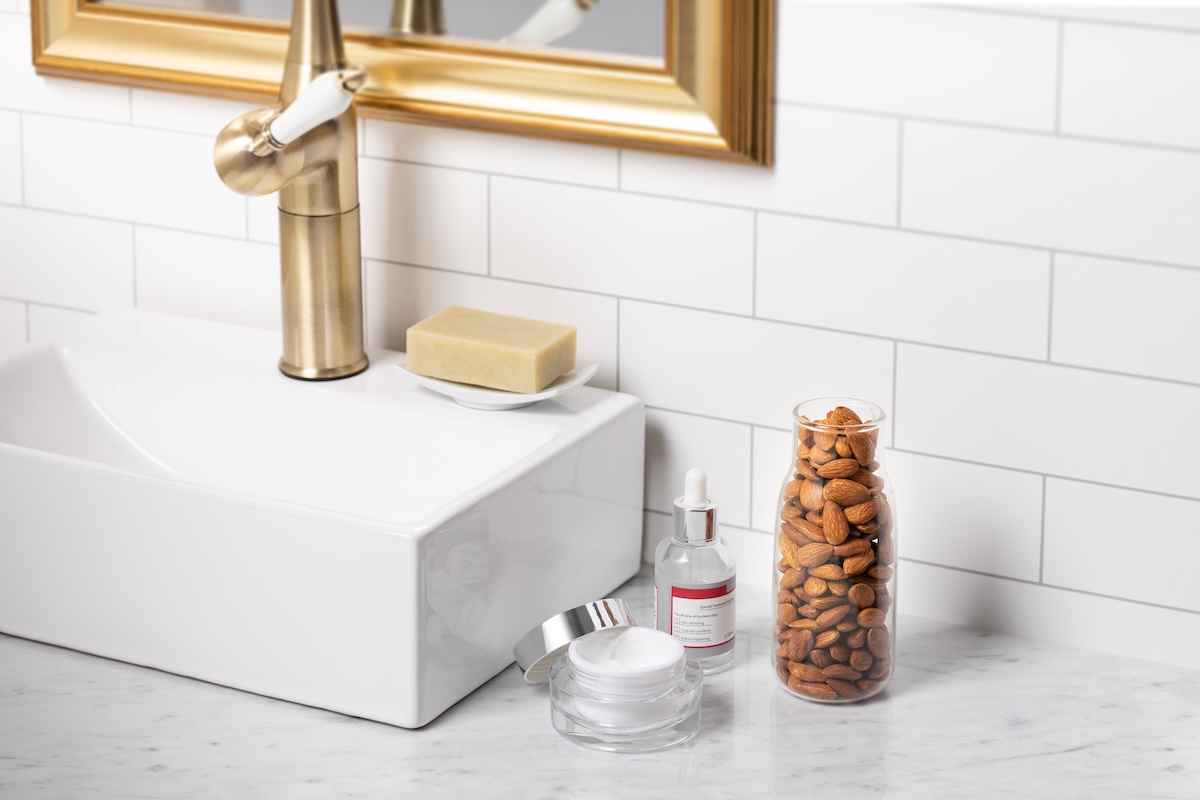As the body’s largest organ system, your skin is the first and last line of defense against the outside world. Scientists are investigating how your diet may benefit skin health, and the Almond Board of California is funding innovative research to provide people with evidence needed to make dietary choices that support skin health and overall wellness.
Almond nutrients that may benefit skin.
Almonds are one of the most nutrient-dense foods around. Several key nutrients found in almonds are linked to skin health, making them a delicious addition to daily beauty routines:
- Almonds are rich in antioxidant vitamin E, which may help protect cells from the damaging effects of free radicals, caused by pollution, UV rays from the sun, cigarette smoke and other environmental and intrinsic factors. One serving of 23 almonds (about an ounce) provides 50 of your daily recommended vitamin E needs. Almonds contain the natural form of vitamin E (d-alpha-tocopherol), which is more potent than synthetic forms found in dietary supplements.
- You’ll find 8% of the Daily Value for zinc. Zinc contributes to the integrity of healthy skin.
- Two B vitamins contribute to the maintenance of normal skin. Almonds offer 25% of the Daily Value for riboflavin and 6% of the Daily value for niacin.
- Almonds are a high source of copper, which plays a role in skin and hair pigmentation.
- Linoleic acid, an essential fatty acid, helps prevent skin dryness. A one ounce serving of almonds has 3.5 grams of linoleic acid.



